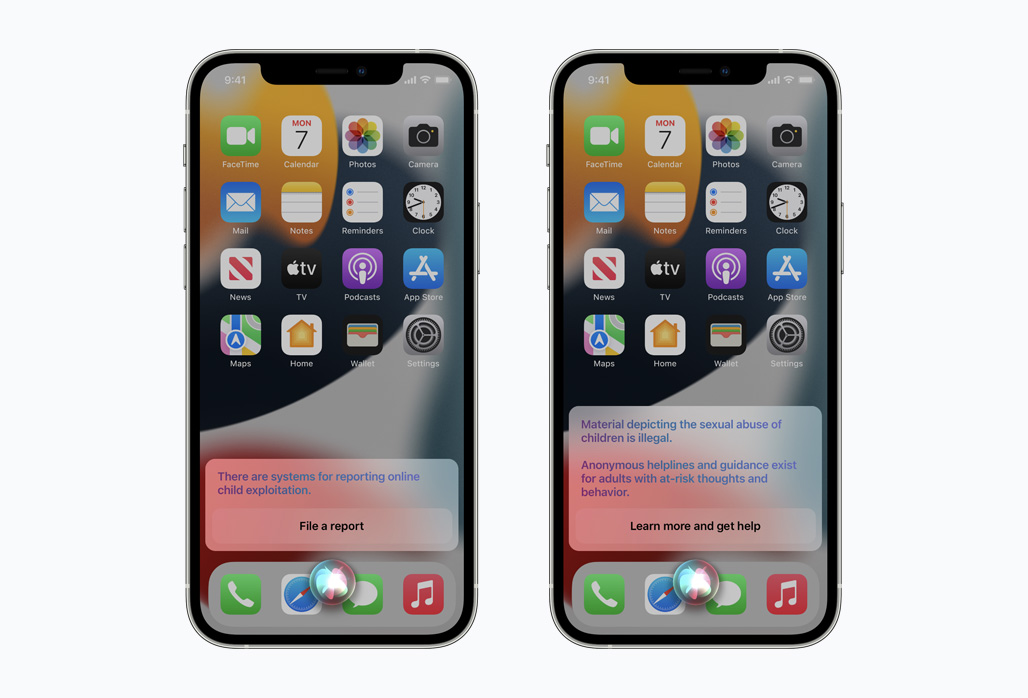A few hours after the announcement of the new system of limitation of Apple’s child pornography, WhatsApp was immediately unleashed against the Cupertino company. While governments around the world have instead welcomed the decision to scan users’ devices for illegal photos of minors. Indeed, many political representatives have called on technology companies to adopt similar solutions.
“It’s time for others, especially Facebook, to follow their lead,” he tweeted Sajid Javid, UK Secretary of Health and former Home Secretary. But the Silicon Valley companies think otherwise, and have harshly criticized Apple for choosing to scan users’ photos before they are even uploaded to the cloud. And among these, WhatsApp seems to have been the one that most of all proved contrary.
WhatsApp vs Apple: harsh criticism of the new child protection system
“This approach introduces something very troubling to the world. This is a surveillance system built and operated by Apple that could easily be used to scan private content for anything they or a government decide they want to check. It is worrying to see them act without involving experts “. Like this Will Cathcart, head of WhatsApp, commented on Apple’s decision to scan user content in order to limit the spread of child pornography. And he added: “We will not adopt it on WhatsApp”.
I read the information Apple put out yesterday and I’m concerned. I think this is the wrong approach and a setback for people’s privacy all over the world.
People have asked if we’ll adopt this system for WhatsApp. The answer is no.
— Will Cathcart (@wcathcart) August 6, 2021
And if the tech giants prove reluctant to adopt such a system, the same cannot be said of government officials. Apps such as Telegram, Signal and WhatsApp have already been urged to embrace the same child protection system. But not everyone agrees with Apple’s decision, which it seems anyway violate privacy of users. Even if it effectively limits the spread of child pornography. “As selfless as its motives are, Apple has built an infrastructure that could be subverted for widespread surveillance of the conversations and information we hold on our phones,” said Jennifer Granick, privacy and cybersecurity consultant.
On the other hand, the dispute between WhatsApp and Apple concerns something much bigger. Recently, political pressure on tech companies has increased to allow government access to encrypted content, including messages, photos and videos. In India, for example, Prime Minister Narendra Modi has passed a law requiring technology platforms to track down illegal messages, including by breaking end-to-end encryption. Which is why WhatsApp is currently engaged in a legal battle against the Indian government. In short, WhatsApp does not seem willing to invade user privacy for any reason, while Apple has embraced the needs of governments. And this alone would be enough to explain the criticisms advanced by the messaging app.
Apple against child pornography: a choice that infuriates Silicon Valley companies
It wasn’t just WhatsApp that took sides against Apple. Other Silicon Valley companies also did not appreciate the choice to work alone on such a delicate issue as that of child pornography. Especially since the decision comes when EU and UK they are working on legislation that would require tech companies to limit the spread of child pornography. It is clear then that one wonders why Apple has decided to build its own “personal” system to address an issue of global interest. In this regard Alex Stamos, former Head of Security at Facebook, said that Apple “does not care at all that everyone is trying to find this delicate international balance”.
 Credits: Apple
Credits: Apple
For the moment, however, Facebook e Google have not yet commented. But WhatsApp was enough, which took a strong stand against the choice of limiting the diffusion of child pornography content from the Cupertino company. On the other hand, however, it must be considered that Apple had been widely criticized for not preventing the circulation of offensive material on iMessage. As the App is end-to-end encrypted, it was impossible to access user content. And perhaps, to overcome this inconvenience, he chose to build a system that would find illegal images on users’ devices. A choice that puts the Cupertino company at the center of a bitter battle between international governments and technology companies.















Leave a Reply
View Comments